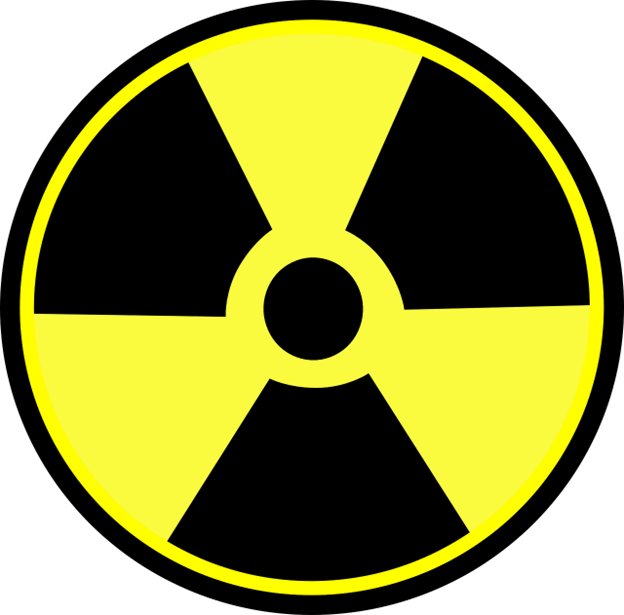Earlier today President Biden reversed his 2022 decision, authorizing the provision of antipersonnel land mines to the Ukrainian government. It follows an earlier Administration authorization to allow the use of
an advanced American missile system capable of striking as deep as 100 miles inside Russian territory.
The US election season may be ending, but both Russia and the West show no indication of stepping down the conflict. Russian propaganda continues to swell as the Kremlin increases its threats to use nuclear weapons against the West.
Last week Andrey Sushentsov, program director of the pro-Kremlin think tank Valdai Discussion Club (VDC), published an article on growing nuclear tensions in the region. Official Russian language in the
last few years has been threatening. Since the US election, rhetoric like that in the Sushentsov article, has approached the level of nuclear blackmail.
The VDC article’s main theme centers on Russia’s intent to directly confront the West militarily if the North Atlantic Treaty Organization (NATO) becomes involved in Russia’s conflict with Ukraine.
“On the one hand, these threats are intended to frighten the West, but on the other, Russian propagandists themselves are starting to believe in the inevitability of escalation,” according to Ksenia Kirillova of the
Jamestown Foundation.”
On November 11, Sushentsov wrote that “The conflict will reach a completely new level, with unpredictable consequences for Europe and the entire world.” Kirillova points out that Putin’s distorted image of the world is divorced from reality and is causing the Kremlin to issue demands that are impossible to fulfill. Financial and other Russian resources needed to support Putin’s war are growing scarcer at the same time.
This week the Kremlin announced a reduction of payments to its soldiers.
Recently North Korea acknowledged it was sending soldiers to fight in Ukraine as Putin is running out of bodies to use as cannon fire.
The war is not going well for Russia.
One question floating around the Washington intelligence community is whether Putin will act out of desperation before President-elect Trump assumes office. In recent months the Russian propaganda
machine is spewing out materials from fairly reputable analytical platforms inside the country. Kirillova says that “Kremlin ‘experts’ do not conceal that such threats are only intended to break the West
psychologically, as they themselves are not prepared for full-scale nuclear war.”
Despite Russia’s lack of preparation for an all-out war with the West, the expanding nuclear rhetoric carries with it an increase in the threat of a full-scale war in multiple theaters of operation.
In June 2023 a founder of the Russian Council on Foreign and Defense Policy, Sergey Karaganov, called for “delivering a pre-emptive strike of retaliation” on Poland to force the West to surrender. In the
previous month, Dmitry Suslov, a direct of research programs at the policy center proposed organizing “a demonstration nuclear explosion” aimed at intimidating the West. In September, President Putin announced a reappraisal of Russian nuclear doctrine after speaking earlier in the year at the plenary session of the St. Petersburg International Economic Forum and jokingly calling Suslov a “scary person.”
Pavel Baev, writing in the European Daily Monitor, says “Putin intends his announcement to mark an escalation of nuclear brinkmanship and influence the proceedings of future Ukrainian peace efforts.”
Putin is expanding the list of environmental conditions that are acceptable for using a nuclear weapon and incorporating it into Russian military doctrine. Baev adds that “The ups and downs of Russian
brinkmanship are disconnected from the kinetic battles of the war, correlating instead with Ukrainian peace offensives, such as Ukrainian President Volodymyr Zelenskyy’s first peace summit in Bürgenstock,
Switzerland.”
Despite the increase in vitriolic language, in a You Tube video published a week before the US presidential election, Karaganov openly assured the West the primary goal of the escalation is to break the American spirit and that of the West, not outright nuclear war. By Election Day in the US, with
political prognosticators predicting a win for former president Trump, Karaganov changed his tune and called for an increased role in nuclear deterrence.
Kirillova points out that Western concessions to Russia are unlikely to reduce the risk of nuclear escalation. The distorted reality inside the Kremlin continues to push that President-elect Trump is an
adherent of “world government,” that Ukraine will create a nuclear weapon, and Russia must prepare for a nuclear conflagration to achieve its ambitions for a new world order. President-elect Trump has
indicated he will not agree to concessions that destabilize Europe, the Middle East or other regions.
Going forward a strong US foreign policy may be the most stabilizing course the West can count on to restrain Putin and his intent to rebuild the Russian empire.
Daria Novak served in the U.S. State Dept.
